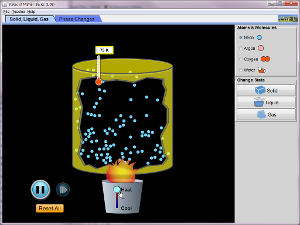7G SOLIDS, LIQUIDS AND GASES
|
In this topic you will learn that everything is made from particles and how these particles are arranged in solids, liquids and gases. You will understand what causes air and water pressure as well as diffusion.
I can
I understand
|
useful 7g websites
BBC Bitesize. Click here for the bitesize information about solids, liquids and gases.
BBC Bitesize. This link has information about pressure, diffusion etc. Look at this animation that shows the particles in water, ice and water vapour. Learn about changes of state by looking at the particles in this animation from Pearson. |

